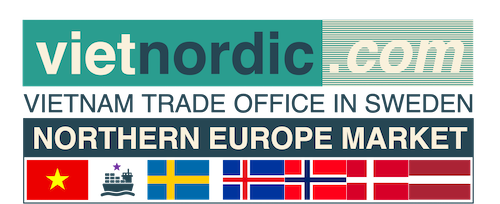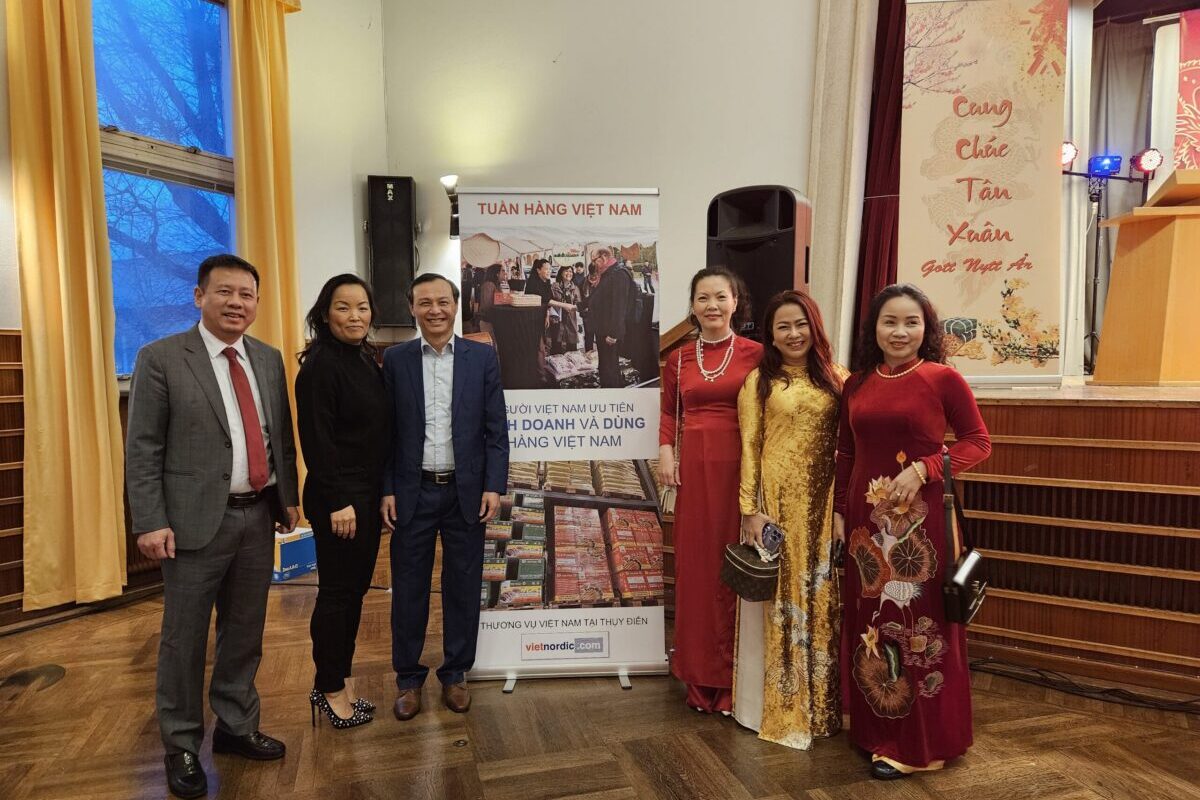To entice the demand for Vietnamese goods in Sweden, the Vietnam’s Trade Office launched the movement “Vietnamese people prioritize business and consumption of Vietnamese goods”.
The Vietnam’s Trade Office in Sweden is planning a number of activities to be held on the sidelines of coming high-level mutual visits to further promote bilateral trade.
2023 was full of difficulties for the global economy due to prolonged impacts of many big changes like the Russia – Ukraine conflict, China’s zero-Covid policy, and the policy response to inflation in many countries, leading to decreased consumption demand and imports.
Economic growth is low in many developed countries, and some places are even starting to fall into recession. As a result, consumers limit unnecessary spending, leading to reduced demand for consumer credit and reduced imports. Exports to Sweden also decreased sharply in 2023.
To promote trade turnover in 2024, right from the first days of the year, the Vietnam’s Trade Office in Sweden has implemented a series of trade promotion activities, of which the focus is on taking advantage of expat community to bring Vietnamese goods into the local distribution system.
The Trade Office shares that Vietnamese people abroad look towards their homeland and want to contribute to building the country. The Vietnamese community in Sweden is very successful and always looks towards the homeland. More than 10 major warehouses importing Asian foods in the North European country are owned by Vietnamese people.
Therefore, to arouse and spread pride in Vietnamese goods, Vietnam’s Trade Office launched the movement “Vietnamese people prioritize trading and consuming Vietnamese goods.” A series of activities have been and are being organized such as visiting wholesale warehouses, holding weekly sales, product testing, bilateral business forum, meetings with potential investors, and organizing business delegations to attend the 2024 Sourcing Fair.
Nguyen Thi Hoang Thuy, Trade Counsellor at Vietnam’s Trade Office in Sweden and Northern Europe, pointed out many challenges to Vietnamese businesses in Sweden, including a small market, high requirements for goods, a lack of direct air routes, and the absence of seaport and airport partnerships. Vietnamese goods also have to comply with stringent regulations such as rules of origin, environmental standards, and technical criteria to enter the EU in general and Sweden in particular.
Once overcoming these difficulties, Vietnamese goods will gain a firm foothold in Sweden and the EU, Thuy said.
According to statistics from the General Department of Vietnam Customs, in January 2024, import-export turnover between Vietnam and Sweden reached USD 165.78 million. Of which, Vietnam exported USD 138.75 million to Sweden, an increase of 27.7% and imported USD 27.02 million from Sweden, an increase of 26.9% over the same period last year.

